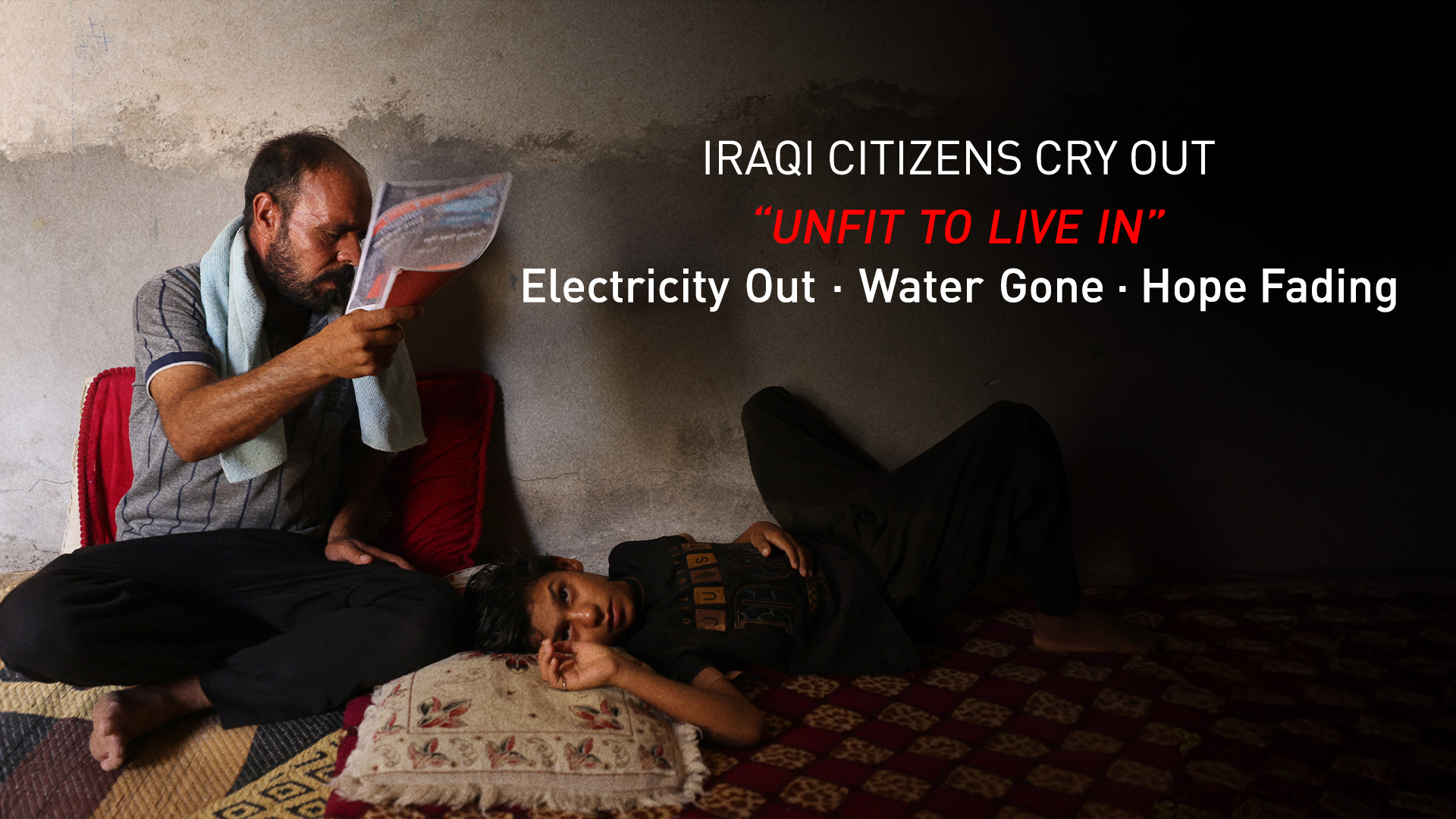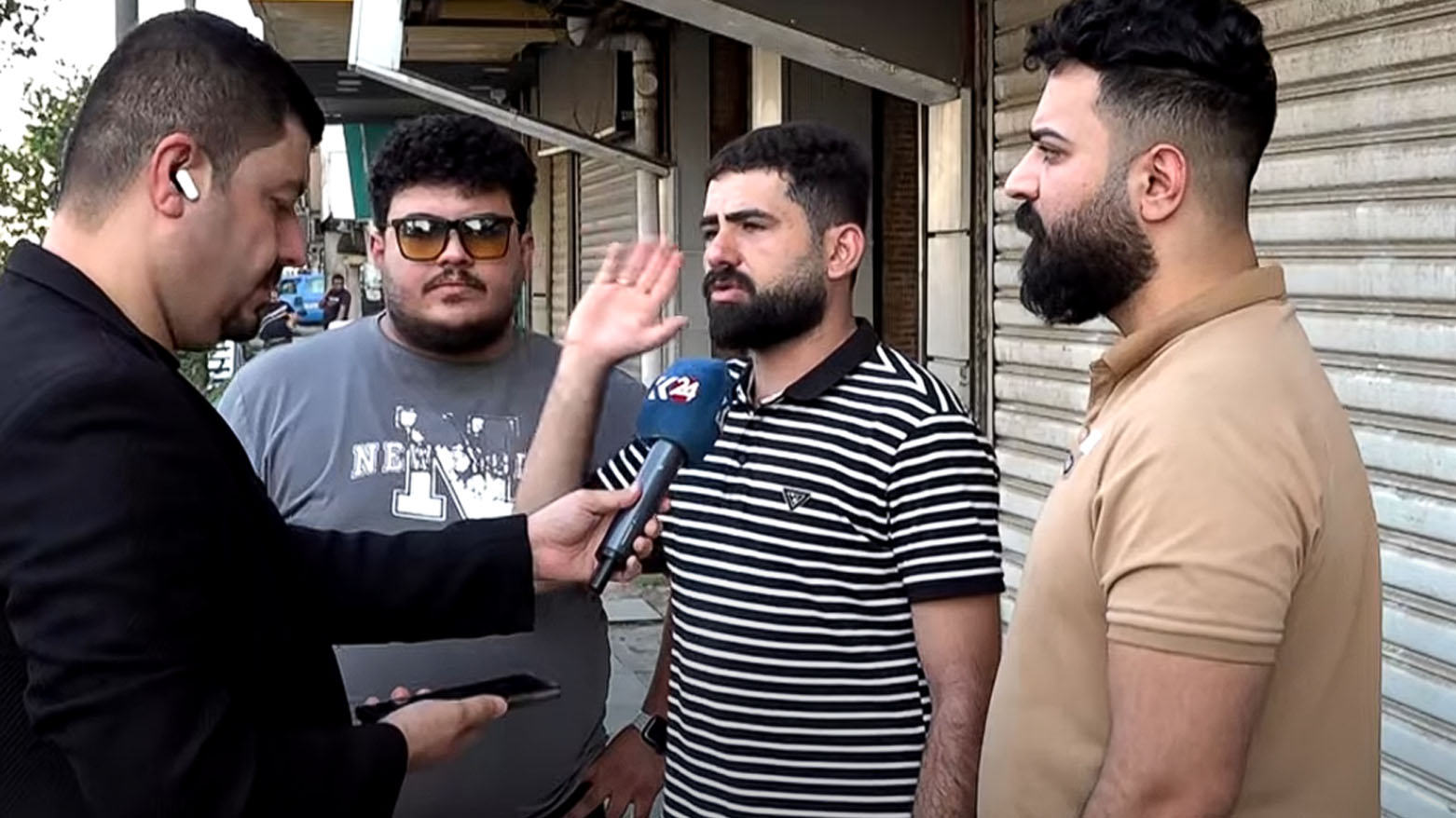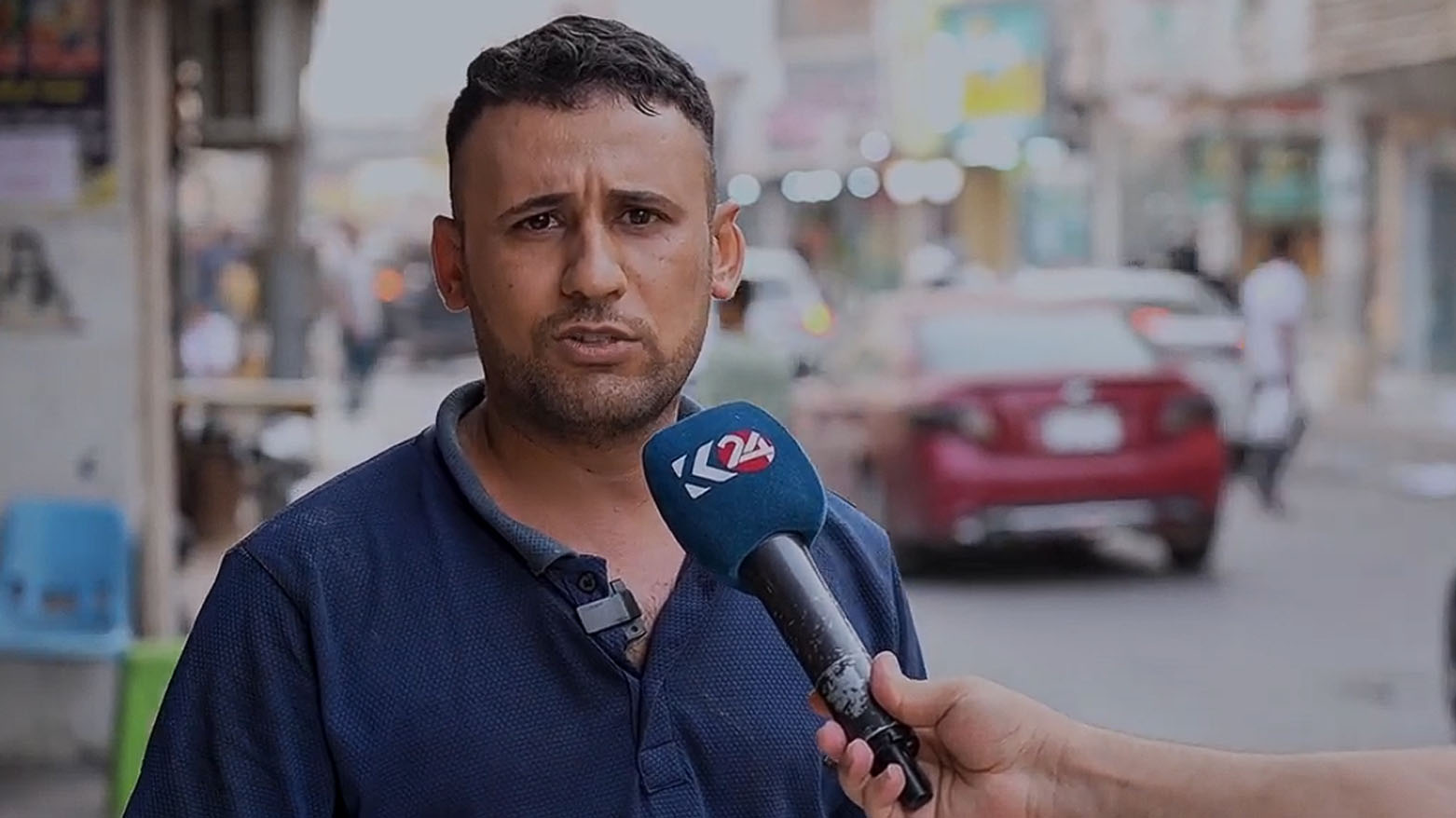Iraq ‘Heading Toward the Abyss,’ Citizens Blame Corruption for Power Collapse
Amid a major power collapse and severe heatwave, citizens in Baghdad and Diwaniyah express fury over decades of corruption, calling life in Iraq 'unlivable' and demanding government action as basic services fail.

ERBIL (Kurdistan24) — Citizens across Iraq are expressing profound anger and despair as a catastrophic failure of the national electricity grid coincides with a blistering heatwave, pushing temperatures past 50 degrees Celsius and leaving millions to suffer in what many are calling unlivable conditions.
From the capital, Baghdad, to the southern governorate of Diwaniyah, residents report that decades of government corruption and mismanagement have culminated in a crisis that has now reached an unbearable limit.
The public fury follows a widespread electricity outage that affected the majority of Iraq's central and southern governorates on Monday.
"The electricity has passed away," Iraqi citizen told Kurdistan24's correspondent.

Local sources reported to Kurdistan24's Shivan Jabbari that electricity generation plants in Kirkuk, Basra, Maysan, Dhi Qar, Baghdad, Diyala, and Anbar all went out of service simultaneously.
While official clarification was not immediately available, the sources indicated the collapse was likely due to heavy loads or a sudden fault in the system, which doubles the suffering of citizens during the extreme heat.
In the capital, Baghdad, residents voiced their extreme dissatisfaction with a crisis that has become a part of daily life since 2003, despite what they state are tens of billions of dollars spent on the sector.
Speaking to a Kurdistan24 correspondent, citizens attributed the perpetual failure to "corruption, quotas, and partisanship," with some asserting that Iraq is heading towards "the abyss."
One citizen working in the decoration field lamented, "The electricity has passed on to God's mercy. It comes for five minutes and is cut for two hours." He added that with the price of a single ampere from private generators reaching 15,000 dinars, even those supplementary sources have begun to fail at night due to the high heat, leaving homes without cooling or water.
"Iraq is no longer fit to live in," Iraqi citizen told Kurdistan24's correspondent.
Another Baghdad resident pointed out the cascading effect of the power cuts, noting that they are accompanied by water shortages, rendering multi-story buildings uninhabitable.
"Most of the services a citizen needs depend on electricity, from food and water to breathing," he said, adding, "If the situation is like this in Baghdad, then may God help the other governorates."
The sentiment was widespread that successive governments have squandered more than 80 billion dollars on the electricity sector without any tangible improvement, with officials accused of theft through corruption networks.
"We don't just want electricity, we want a real homeland," another citizen stated, recalling the 2019 and 2020 Tahrir Square protests.

This desperation is mirrored in Diwaniyah governorate, where the suffering of citizens is worsening.
"No electricity, no water, no basic services," Iraqi citizen told Kurdistan24's correspondent.
"Today the temperature exceeded fifty degrees, and the electricity is cut for long hours," a resident told Kurdistan24. "My family and children are living in suffocating heat, and no solutions are in sight."
Another citizen in Diwaniyah echoed the accusations of deep-rooted corruption, stating, "The problem is rooted in corruption and mismanagement, and we have not seen any tangible improvement."
Residents there highlighted an almost complete lack of services and called on the Iraqi Prime Minister to visit the governorate to witness their difficult living conditions firsthand, stressing that the people of Diwaniyah feel marginalized.
Citizens in Baghdad unanimously agreed that the ongoing crisis has made life in Iraq "unfit to live in," and that when they demand their rights, they are met with accusations of being "jokers" or "agents" in an attempt to silence their voices.
